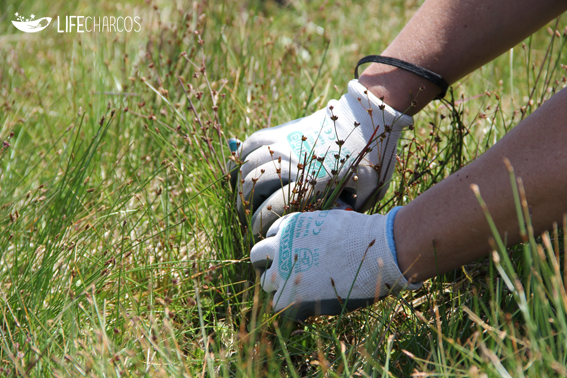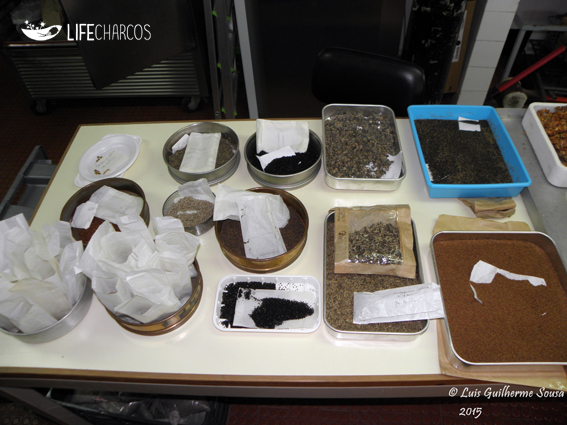> The LIFE Charcos Project is storing seeds from the Temporary ponds’ plants at the University of Évora as a way of safeguarding this important genetic heritage.
Seed Banks are scientific infrastructures aiming to ex-situ conservation1. The way they do it is through storage of seeds, DNA, tissue or other parts of the plant preserved at low temperatures in order to safeguard plant species for longer periods of time. The conservation of genetic diversity of plant populations is guaranteed by this process and will also allow the provision of material for research purposes and/or for restoration actions of the habitat.
Seed Banks are also considered to be a preventive conservation option, working as an insurance against future threats, which is particularly important in situation where species’ populations are small or live in such restricted areas. Effectively, this resource could allow reintroduction or population reinforcement in extreme situations of species at risk of extinction.
The LIFE Charcos Project aims to conserve Mediterranean Temporary Ponds (MTP), which are considered a priority habitat by the Habitats Directive (3170 * habitat of Annex I). These temporary ponds have a floristic composition well adapted to the extreme ecological conditions that features these ponds. The peculiarity of the species of these ecosystems comes from their expertise. Thus, different adaptive mechanisms have developed over time so these species can tolerate and survive the dryness and also the submergence phase that this habitat undergoes every year. Furthermore, the plants characteristics of the ponds certify a essential micro-habitat to the survival of many animals such as freshwater crustaceans, amphibians, reptiles, among others.
Despite the fact that LIFE Charcos Project’s main goal is the conservation of MTP in its natural place of origin (also called in-situs conservation) and obviously all the biodiversity associated, it also intends to guarantee the protection of flora biodiversity as a complementary measure. To do so, the LIFE Charcos’ team is collecting, cleaning and storage plant biodiversity in a particular seed bank at the University of Évora. This seed bank intends to contribute to a repository of indigenous species of MTP, as well as a conservation tool made available for use in future habitat restoration actions.
It was contemplated the distribution of duplicates of seeds to seed banks around the world, thereby cooperating with other global plant conservation projects and maximizing the potential of safeguarding this natural heritage.
See the different phases of the work in the following images:

Collecting Seeds - Photo of Carla Pinto Cruz

Seeds in the lab to be processed - photo of Luís Sousa

Cleaning seeds with sieves - Photo of Luís Sousa photography

Cleaning seeds with blower - Photo of Luís Sousa

Manual seed cleaning - photo of Carla Pinto Cruz

Drying seeds - Photo of Luís Sousa

Seed storage - Photo of Luís Sousa

Seed bank - photo of Carla Pinto Cruz
___________________________________________
1Ex-situ conservation, which literally means, conservation out of place of origin, is the process of protecting species in danger of extinction, including plants and animals, by removing part of the threatened habitat population and transporting them to a new location enabling its safeguard. In addition to the seed banks also the captive breeding program for later reintroduction in nature, as is happening with the Iberian lynx, are examples of ex situ conservation.


